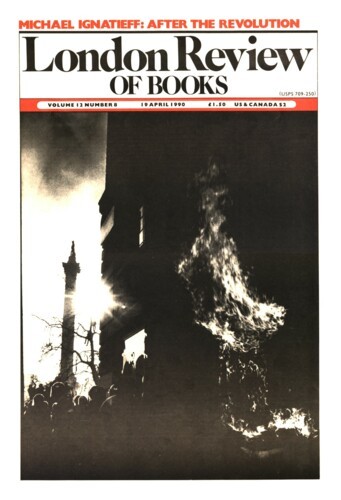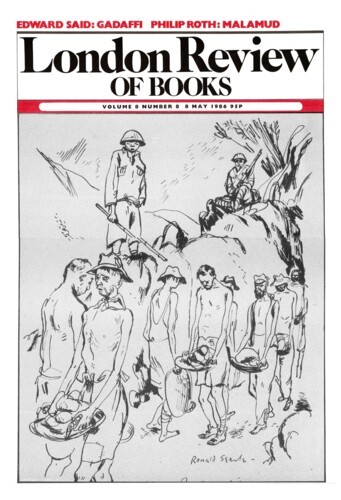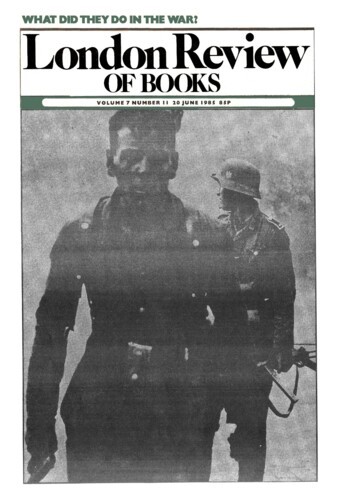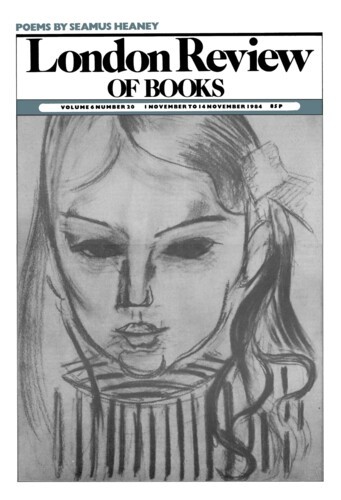Living like a moth
Michael Ignatieff, 19 April 1990
I have always wondered when my grandparents realised they would never see Russia again. In July 1917, when they locked up the house on Fourstatskaya Street in Petrograd, left the key with my grandfather’s valet and set off with a party of servants for Kislovodsk, a spa town in the north Caucasus, they told the children that they were all going for a summer holiday. That is what they said. But what were they thinking? The disintegration of the Provisional Government was underway. One of their sons swears he overheard his father whispering to another relative: ‘I’ve got to get them out of here.’ And my grandmother, whatever reassuring fictions she may have told her children, took her jewellery with her, and ordered the maid servants to pack a trunk of family valuables. Some shadow passed across her mind, and she took precautions, and that is why there is a silver ewer and basin in my house, one piece of family linen with a monogrammed crest and two bits of jewellery. Without that instant of hesitation, they might have been lost.





